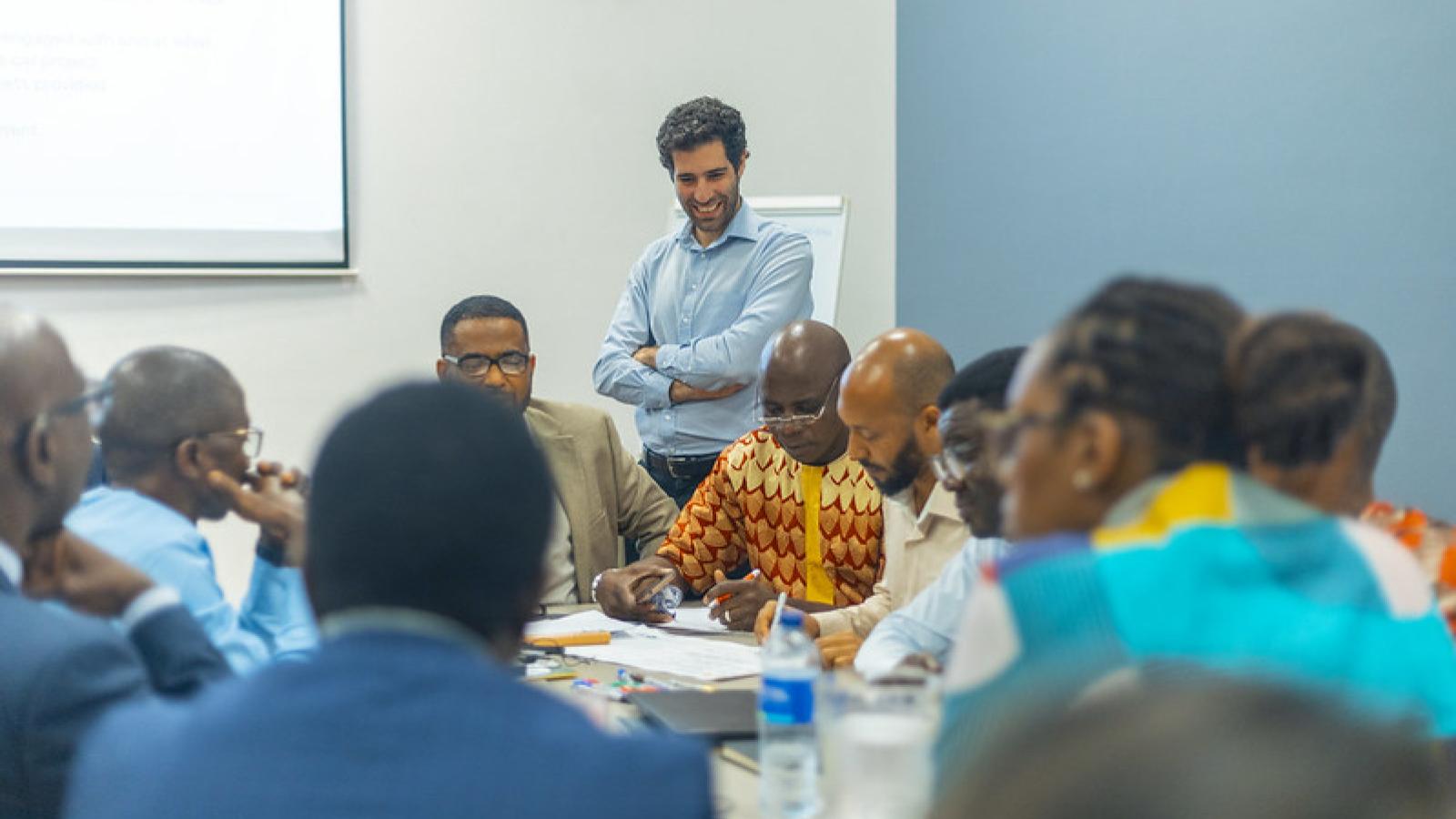Opinion
UrbanShift Looks Back: Reflecting on Uniting Stakeholders for Climate Action
C40’s Viola Follini, Matheus Ortega, Emily White, Anelise Rosa, and Amaia Leonet discuss the value of bringing a wide range of sectors—from mayors to the private sector—to the table to accelerate urban transformation.
C40 hosting stakeholders from Freetown in Medellín (image: Juan Navarrete and Nicole Ascanio/Epigrama)
The UrbanShift project will conclude in October 2025. In the program’s final year, we will be looking back at our work to support integrated and sustainable urban planning through a series of conversations with the partner organizations who have led UrbanShift. This is the third piece in this series. Read the first on our capacity-building work here, and the second on finance support here.
Viola Follini: I think one of the most powerful aspects of our involvement in UrbanShift has been who we’ve been able to bring into the room to make progress on climate action. At C40, we work with a network of cities and within those cities, we engage primarily with mayors. But through UrbanShift, we’ve really broadened the lens. Not only have we been able to connect cities from within the C40 network to a wider range of cities through the UrbanShift partnership, but we’ve also seen the impact of bringing national government representatives into the conversation with mayors and city officials. There is so much value in breaking down siloes and working across cities, across departments, and across levels of government.
Matheus Ortega: We’ve heard from quite a few city officials that before participating in our events, they had not been able to connect with national government officials in their own country. But through UrbanShift, they could not just meet, but also discuss collaboration on important and cross-cutting projects. We witnessed the power of that multi-level convening through a Peer-to-Peer Exchange we hosted for Freetown to visit Medellín and learn about their cable car system. City officials and national government representatives from Sierra Leone joined the exchange, and they’re now actively discussing a similar project for Freetown. I think it’s often the case that in the context of a country, there’s a very strong hierarchy between national and local governments. But in the context of our capacity-building events, it’s much more horizontal. We created an environment where anyone could speak up and offer their perspective, and people could collaborate and learn together.
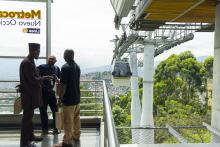
Amaia Leonet: I think UrbanShift also creates opportunities for smaller or less prominent cities to make their voices heard, too. Through the Green & Resilient UrbanShift Africa Forum, which C40 hosted in February, we worked to ensure representation from a wide range of African cities and create a space for them to connect. We often work with major cities in the Global North, and they’re making amazing progress, but it’s really powerful to see smaller cities coming together and stepping up. For instance, C40 convened African mayors to sign an open letter calling for urgent access to unlock access to climate finance, and you can see such a range in the 23 cities that signed onto the letter. We’re still getting loads of momentum and interest in signing on after the event, and I think that it’s because UrbanShift and the Forum offered a massive and welcoming platform for the message.
Anelise Rosa: Seeing mayors make these types of public statements, or articulate a vision for their city at an event like the UrbanShift Forum, really brings home and highlights the value of the more technical work that we do, too. We spend so much time in conference rooms working with city officials on very technical projects and strategic plans, and with anything in government, it can be a long time before this work sees the light of day. But to see a mayor acknowledge this work on the stage shows that this work isn’t just theoretical—it has political backing and a path to implementation.
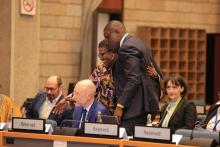
Matheus Ortega: That’s why it was so meaningful when Mayor Yvonne Aki-Sawyerr of Freetown introduced the city’s new Climate Action Plan in 2022 and mentioned UrbanShift and C40. We had supported the city in developing the plan in a few different ways—urban planning guidance, an emphasis on urban nature-based solutions, business involvement—and seeing it finalized and launched publicly brought the work full circle.
Eillie Anzilotti: That really underscores that climate action planning work, which C40 has led through UrbanShift, is not just one sector: it’s a multifaceted and complex effort that requires collaboration with so many different players. How have you worked on bringing the private sector into this work?
Emily White: UrbanShift has been one of the first big programs we've been part of that has really acknowledged the role that the city plays as a convener of all these sectors, and the importance of engaging the private sector in conversations around climate action. It’s been exciting to see the transformation in how cities talk about this. At first, the focus was on investment opportunities or public-private partnerships to solve a funding gap. But now, they’re thinking about skills, about what knowledge the private sector can bring to innovation, about how they can change procurement processes to broaden the kinds of solutions they have access to. With UrbanShift, we’ve been able to highlight different ideas for city-business collaboration models from various cities, as we captured in our guide to public-private collaboration in the Global South, and show how working with the private sector can unlock new pathways for climate action.
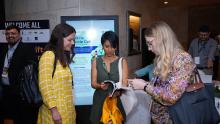
Through UrbanShift, we’ve hosted a number of City-Business Climate Alliance workshops, which bring together economic development professionals who don’t typically talk about climate action. We saw during the CBCA workshop we hosted for African cities in February 2024 in Cape Town that they were really taking advantage of the opportunity to think about how to broaden the scope of their economic development plans to bring in climate goals and experts, and mainstream the idea of climate action across their plans.
Anelise Rosa: The point about witnessing a shift in the conversation over the course of the project is really important. We’ve engaged a lot with cities in Brazil over the years, for instance: We hosted an adaptation-focused Finance Academy for Brazilian cities in 2023, and we saw a lot of those same projects surface again with more detail and momentum in the Investor Roundtable we hosted during the UrbanShift Latin America Forum in Belém in 2024. Not only have we seen conversations around financing these specific projects moving ahead—we’ve also seen a heightened awareness within cities around the role of nature-based solutions for climate adaptation and resilience. It’s exciting to now see more mayors in Brazil talking about nature-based solutions in the lead-up to COP this year.
Eillie Anzilotti: It’s encouraging to see these conversations spreading across sectors and influencing how cities and countries are approaching future planning. What, to you, have been some other ways that you’ve seen C40’s work through UrbanShift take root?
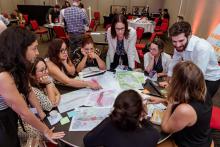
Matheus Ortega: We’ve been taking a lot about the impact of our work on the cities and people we engage with directly through our events, but we’ve also been reaching a much broader audience, too. Our resources that we developed, like the public-private collaboration guide for Global South cities, which Emily mentioned, and the Climate Action Guide for Urban Planners which we launched in November 2024 are getting a lot of attention and demonstrating that there’s an enormous appetite for deeper learning and involvement in climate action, in many forms. And it’s been gratifying to see how many people have enrolled in the Online City Academy, which we launched in 2023. If I look at a map of where people are learning, there’s such a range. It’s evidence that people all over the world are learning about how to transform cities and shifting their mindsets around what’s possible.
Viola Follini: There are so many events focused on cities that happen all over the world, from COP to the UrbanShift Forum, and we see so many decisions and announcements being made about actions. But it often feels harder to see what the change is on the ground. I like to think that with the outcomes of some of our events, like the inspiration for a cable car system that Freetown gained from the exchange with Medellín, that we’ll be able to look ahead in five years' time and see actual transformation on the ground thanks to our support. Climate action doesn’t happen overnight, but what we’ve seen is that if we are able to involve as many people in cities as possible in this conversation around making cities more resilient, we can make an actual impact.
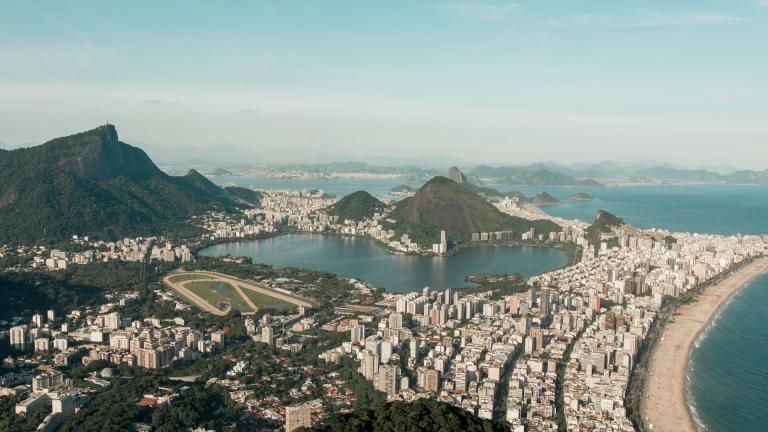
UrbanShift at COP30
UrbanShift will be participating in a range of events during the Local Leaders Forum in Rio and COP30 in Belém. Learn more here.
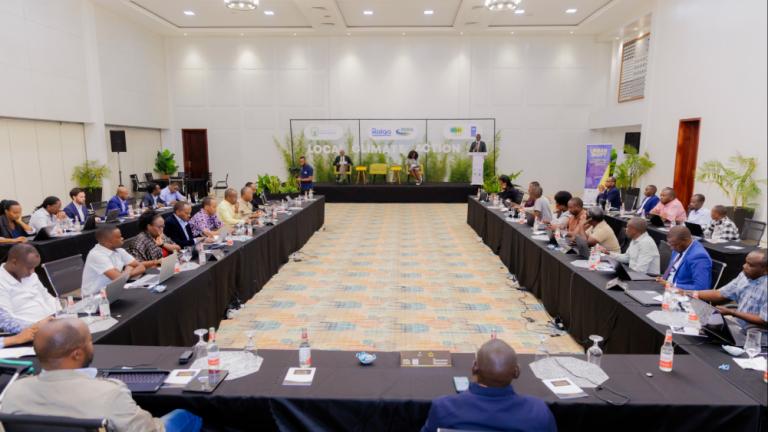
UrbanShift Looks Back: On the Importance of Facilitating Multi-Level Collaboration
Over the course of the UrbanShift program, ICLEI has led on National-Local Dialogues and other efforts to support enhanced collaboration across levels of government to create more aligned, actionable climate strategies.
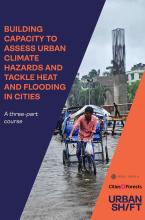
Building Capacity to Assess Urban Climate Hazards and Tackle Heat and Flooding in Cities
These three interconnected courses are designed to build the capacity of city officials and urban practitioners to conduct vulnerability assessments.
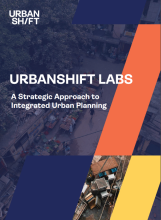
UrbanShift Labs
Summarizing insights and lessons from eight of UrbanShift's Labs, this report offers a template for furthering geospatial analysis in cities.
